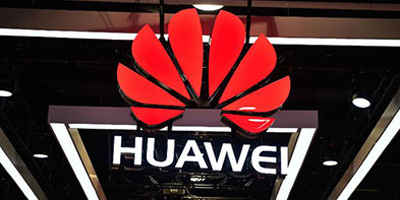The European Union and Japan finalized common rules to protect personal information, and launched what they called the “world's largest areas of safe data flows”. Firms can transfer data now that the executive European Commission finds that Japanese law offers “a comparable level of protection of personal data,” the commission said.
Policy News
New Zealand explains the true reason behind Huawei ban
New Zealand denied that telecommunications giant Huawei was banned from a 5G network rollout because it is Chinese, saying the problem it faced was a technological one. Wellington also dismissed suggestions its intelligence services came under pressure from allies in the Five Eyes spy network to bar Huawei amid fears about cybersecurity and its potential links to Beijing.
China commits to enhancing ICT talent in Myanmar
China and Myanmar have agreed to strengthen their cooperation in the educational field and ICT talent development in particular with a new MoU signed by Chinese colossus Huawei and Myanmar’s Rectors’ Committee under the supervision of the Ministry of Education.
Spark - Huawei 5G collaboration hindered by NZ intelligence agency ban
New Zealand's largest telecoms carrier Spark said that the country's intelligence agency had barred it from using equipment provided by China's Huawei in its 5G network as it posed “significant national security risks”. The move follows reports the United States is urging its allies to exclude the Chinese telecoms giant from 5G rollouts over cybersecurity fears.
Large income for Hong Kong in spectrum auction
In the sale of 120 MHz of spectrum in both 900MHz and 1800MHz bands, Hong Kong’s government was able to earn HKD6 billion ($767 million).
Hong Kong adopts a ‘sandbox’ approach for crypto exchanges
Hong Kong’s Securities and Futures Commission (SFC) CEO Ashley Alder disclosed that the commission will adopt a “sandbox” regulatory regime for crypto exchanges in the Asian financial hub in order to efficiently monitor digital assets and cryptocurrencies.
Huawei says ‘no evidence’ of security threats, the company’s record remains clear
Huawei defended its global ambitions and network security in the face of Western fears that the Chinese telecom giant could serve as a Trojan horse for Beijing's security apparatus.
US indictment halts ambitions of Chinese semiconductor
Chinese semiconductor maker Fujian Jinhua Integrated Circuit Co Ltd has been striving to pave the way for “the era of Chinese chips”. However, the Chinese company is facing hurdles notably with the US Justice Department indicting Fujian Jinhua and Taiwan-based United Microelectronics Corp (UMC) for industrial espionage.
China court to block iPhone sales at Qualcomm's request
A Chinese court ordered a ban in the country on iPhone sales in a patent dispute, said US chipmaking giant Qualcomm.
Australia seeks access to encrypted data with controversial legislation
Major tech giants Facebook, Apple, Alphabet and Amazon have expressed opposition against an Australian law that requires them to give authorities access to private encrypted data related to suspected illegal activities, following fears of the increasing risk of terror attacks. The four tech titans will jointly lobby against the proposed bill ahead of a parliamentary vote. If it enters into force, Australia would be one of the first countries to impose such measures.















